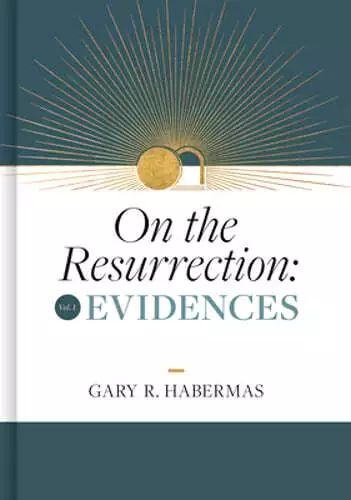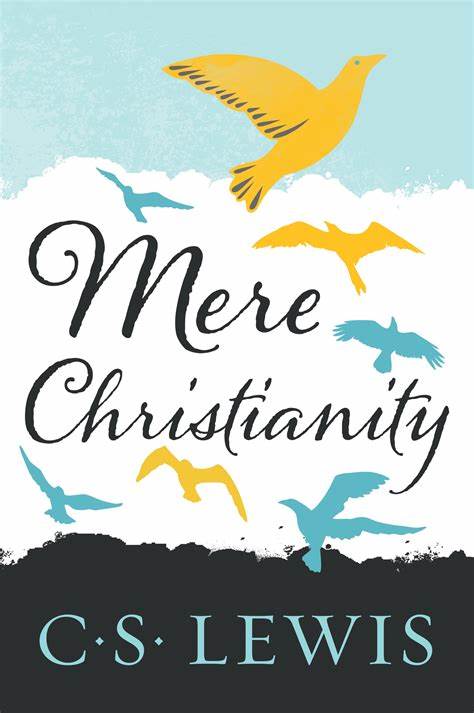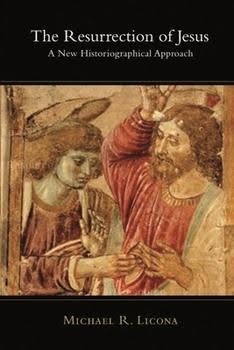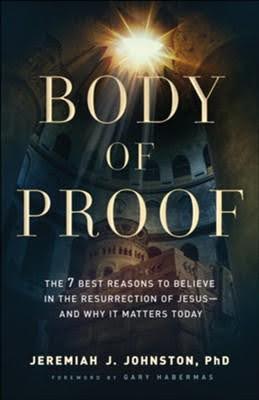
Dr. Gary Habermas is the leading expert on Jesus’s resurrection, with 50 years of peer-reviewed research, multiple books, and hundreds of articles. His latest book, On The Resurrection Evidences Volume One, contains just under 1100 pages of evidence recognized by scholars of varying worldviews: Christian, atheist, agnostic, and Jewish. Habermas lays out his case in great detail while interacting with critical views. On The Resurrection will be recognized as the seminal evidential apologetic book of the twenty-first century.

It is the most popular apologetic book ever written. Lewis writes like Michelangelo paints, making it an easy, enjoyable read. In it, he explains why he left atheism and turned to Christianity. It is a must-read for every Christian or anyone contemplating Christianity.

Dr. Michael Licona delivers a storehouse of valuable historical evidence on Jesus’s resurrection and ministry. The Resurrection of Jesus: A Historiographical Approach holds seven hundred pages of impactful information and analysis representative of years of Licona’s resurrection research.

N.T. Wright has held various academic and chaplaincy posts at Oxford, Cambridge, and McGill University, Montreal. He was Canon of Westminster in 2000 before serving as Bishop of Durham between 2003 and 2010. He is currently a Research Professor Emeritus of New Testament and Early Christianity at St Mary’s College at the University of St Andrews and a Senior Research Fellow at Wycliffe Hall, Oxford. His book The Resurrection Of The Son of God is eight hundred pages on the historicity of the resurrection and its theological implications for humanity.

James H. Charlesworth earned his Ph.D. at Duke Divinity School. Since 1984, he has served as the George L. Collord, Professor of New Testament Language and Literature at Princeton Theological Seminary. He has also taught at the Hebrew University and W. F. Albright Institute in Jerusalem, Naples University in Italy, and Pontificia Universita Gregoriana in Rome. His book Jesus and Archaeology, written in 2006, is a comprehensive listing of the archeological sites discovered to date supportive of Jesis’ life and ministry.

Dr. Ben Shaw provides the clear introduction we need to understand the New Testament’s historical reliability. In his book Trustworthy, he systematically surveys critical issues related to New Testament reliability and guides those setting out to explore the evidence. Concise, to-the-point chapters equip readers to answer the challenging questions one meets when discussing the credibility of the New Testament. At 107 pages, Trustworthy is a quick, easy, enjoyable read.

Dr. Gary Habermas’s book The Historical Jesus: Ancient Evidence For The Life Of Christ is an excellent introduction to evidential apologetics written by the world’s leading authority on the topic. It is the perfect starting point if you are new to studying the resurrection. The book is a 300-page guide that reviews the historicity of Jesus.

Justin Bass (PhD, Dallas Theological Seminary) lives in Amman, Jordan, serving refugees through an NGO. He is a professor of the New Testament at Jordan Evangelical Theological Seminary. In The Bedrock of Christianity, Justin Bass shows how, regardless of one’s feelings about Christianity, there lies a bedrock of truths about Jesus’s life and ministry held by virtually all scholars of religion. By examining these essential facts, readers will find unalterable truths upon which everyone can agree. This study is helpful for Christians and non-Christians alike, as it proves what we know about the historical truth of Jesus’ death and resurrection.

In Body of Proof, acclaimed apologist and scholar Dr. Jeremiah Johnston sets out to show why Jesus’ victory over death is central to a believer’s faith. Straightforward, accessible, and practical, this book examines the latest archaeological and textual findings and presents seven tangible, fresh reasons to believe Jesus really rose from the dead—and why it matters

Dr. Norman Geisler, PhD, was a prolific author, veteran professor, speaker, lecturer, traveler, philosopher, apologist, evangelist, and theologian. A mentor to countless apologists and theologians, several consider him to be the grandfather of classical, evangelical Christian apologetics–a wide-ranging, holistic apologetic that would encompass foundational matters like knowing truth about reality, to knowing God exists by reasoning from effects to their causes, to the historical trustworthiness of the four gospel accounts, Dr. Geisler’s book Baker Encyclopedia of Christian Apologetics is the best resource for understanding the language, terminology, and ideas undergirding the study of Christian apologetics.

Evidence That Demands a Verdict, Josh McDowell armed thoughtful Christians with historical documentation and modern scholarship, bearing witness to the truth of the Bible. Evidence quickly became a resource for millions of believers defending Christianity against the harshest critics. Josh is joined by his son, Sean McDowell, in this exciting new edition with more historical insights to encourage those familiar with Evidence and a new generation of believers to embrace the truth of Christ in a skeptical culture. This book invites readers to bring their doubts and doesn’t shy away from the tough questions. Their book Evidence is 800 pages chock full of compelling facts.

Dr. Stephen Myer’s new book is unlike earlier arguments for intelligent design. Signature In The Cell presents a radical and comprehensive new case, revealing the evidence not merely of individual features of biological complexity but instead of a fundamental constituent of the universe: information. That evidence has grown exponentially in recent years, and it is known to scientists in specialized fields but largely hidden from the public view. A Cambridge University-trained theorist and researcher, director of the Discovery Institute’s Center for Science and Culture, Dr. Meyer is the first to bring the relevant data together into a powerful demonstration of the intelligence that stands outside nature and directs the path life has taken.

William Lane Craig is a visiting scholar in philosophy at Talbot School of Theology in La Mirada, Calif. He lives in Atlanta, Ga., with his wife Jan. Craig pursued his undergraduate studies at Wheaton College (B.A. 1971) and graduate studies at Trinity Evangelical Divinity School (M.A. 1974; M.A. 1975), the University of Birmingham (England) (Ph.D. 1977) and the University of Munich (Germany) (Doc. Theology). 1984). From 1980–86, he taught Philosophy of Religion at Trinity, when he and Jan started their family. In 1987, they moved to Brussels, Belgium, where Craig pursued research at the University of Louvain until 1994. Reasonable Faith is a deep philosophical look at apologetics, both in theory and practice, as presented by master apologist William Lane Craig, now in its third edition. First penned in the 1980s, Craig himself has updated Reasonable Faith for the 21st century, digging even deeper into the nature of truth, reason, and Faith. Craig elucidates biblical truths, logical proofs, and critiques of other relevant writers by examining the broad topics of faith, man, God, creation, and Christ.

Atheist-turned-Christian Lee Strobel, the former award-winning legal editor of The Chicago Tribune, is a New York Times best-selling author of more than forty books and curricula that have sold fourteen million copies in total. After probing the evidence for Jesus for nearly two years, Lee became a Christian in 1981. He later became a teaching pastor at three of America’s largest churches and hosted the national network TV program Faith Under Fire. In addition, he taught First Amendment law at Roosevelt University and was Professor of Christian Thought at Houston Baptist University. A case of Christ Lee’s original book details his investigative journey that led to his conversion.